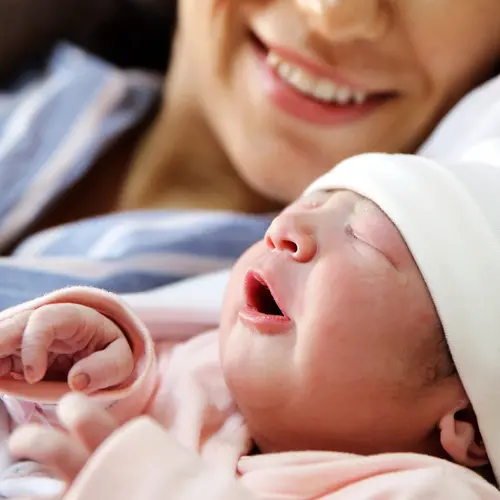As a new parent, it’s understandable if you find yourself reconsidering devices you used to think were safe. There are plenty of appliances that aren’t safe around babies, including space heaters and humidifiers. Being cautious with air purifiers is reasonable.
Here’s everything you need to know about using air purifiers around babies and doing it safely.
What Are Air Purifiers?
The term “air purifier” can apply to any device that’s designed to remove contamination from the air.
According to the CDC, the air inside your home can often be more polluted than outside air. There are a variety of sources for this indoor pollution. These can be indoor pets, mold, cooking equipment, volatile organic compounds, and cleaning chemicals.
Air purifiers work to remove those pollutants from your home. If done safely, this can help you protect your baby. Indoor air pollution can be especially harmful for kids, so removing it is important. Childhood exposure to common indoor air pollutants can lead to problems including:
- Higher risk of allergies
- Higher risk of asthma
- Lung damage
- Higher risk of future lung cancer
Removing these risks from your baby’s life can help you keep them and yourself healthy.
How Air Purifiers Work
There are three main types of air purifier:
Filter. Filtering air cleaners use filters to remove particles from the air directly and produce no byproducts. These purifiers can remove allergens and pollutants of different types, depending on the filter size and rating they include.
Electronic. Electronic air cleaners give particles a static charge to encourage them to stick to objects in the room and fall out of the air. These cleaners make ozone as a side effect and may not remove all pollutants.
Ozone-generating. Ozone-generating air cleaners create ozone on purpose to chemically clean the air. These cleaners are supposed to degrade the pollutants, but this has not been scientifically-proven to work.
Filtering air purifiers are most effective, especially if you choose a filter that’s HEPA rated. Electronic air cleaners are not as effective at cleaning the air as filters, and the ozone they produce is considered dangerous. Because of that, ozone-generating air purifiers should be avoided by everyone, and electronic air cleaners aren’t usually recommended.
Are Air Purifiers Safe for Babies?
Air purifiers are a complicated type of appliance. Since not all air purifiers are made the same way or do the same thing, they have different risks.
In general, most air purifiers are perfectly safe around your baby as long as you take some precautions. Filtering air purifiers remove pollution from the air, so they can actually help keep your baby healthier.
The exception to this rule is air purifiers that produce ozone. These purifiers intentionally or accidentally make the dangerous compound ozone to break down pollution instead of removing it.
The EPA has declared these air purifiers dangerous for adults and children alike. Ozone can damage the lungs even in low quantities.
If you’re looking for an air purifier to use around your baby, never choose a filter that can generate ozone.
Safety Precautions for Air Purifiers Around Babies
Air purifiers can be good for your baby, but there are still some precautions you can take to make sure you keep them safe and healthy.
Never choose an air cleaner that can generate ozone. Any filter that claims to “ionize” your air pollution or to use UV light to clean your air can generate ozone as a side effect of the “purification” process. Meanwhile, ozone-generating air cleaners create ozone on purpose. Never use one of these air purifiers in a room that your baby will be in. Don’t put their lungs at risk.
Always choose air purifiers that use physical filters. Genuine air filters remove pollution by trapping it in a filter. There’s no harmful ozone generated. All you need to do is remove the filter once it’s dirty and then wash or replace it. There are no byproducts, just cleaner air.
Keep the air filter away from where your baby can crawl. Curious babies may try to play with the air filter, so you should make sure to childproof it. These filters often have fans, and they generally plug into a wall socket. Keeping your air purifier out of reach can help you avoid problems like injured fingers or electrocution.
Always follow the safe use guidelines for your air purifier. Different air purifiers will have different needs and user requirements. Review the manual to see how long you can run your air purifier safely, and how much space it needs to work effectively.

